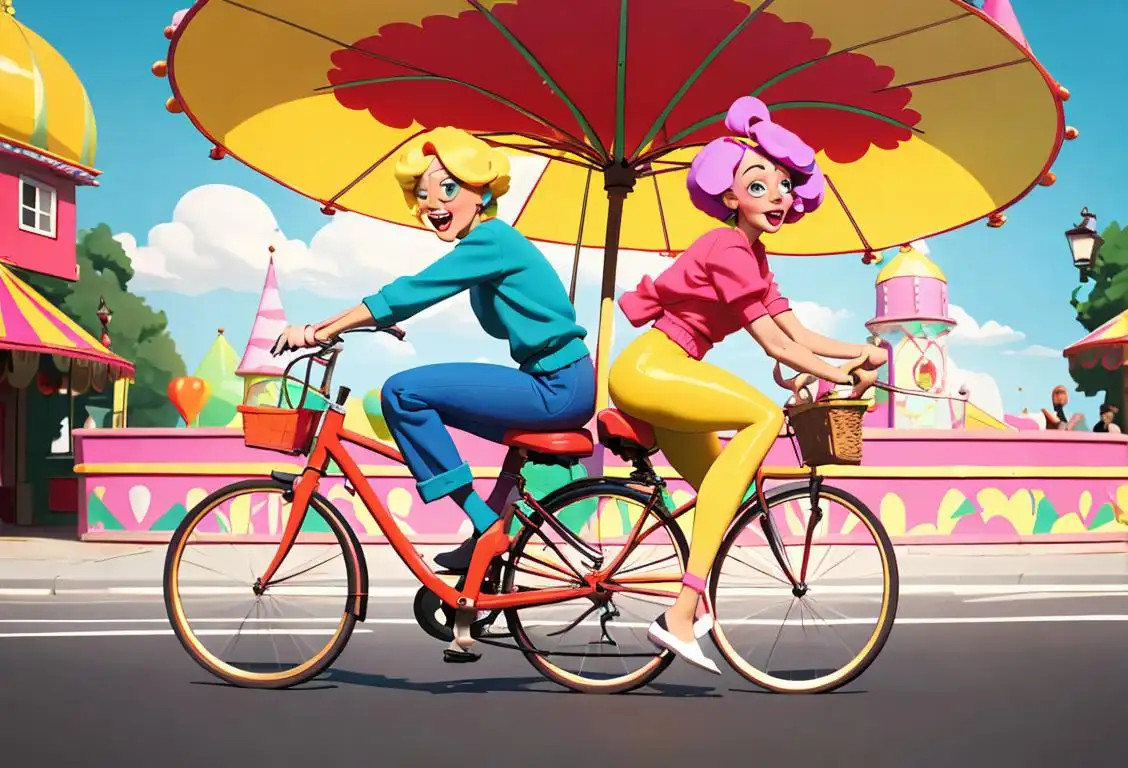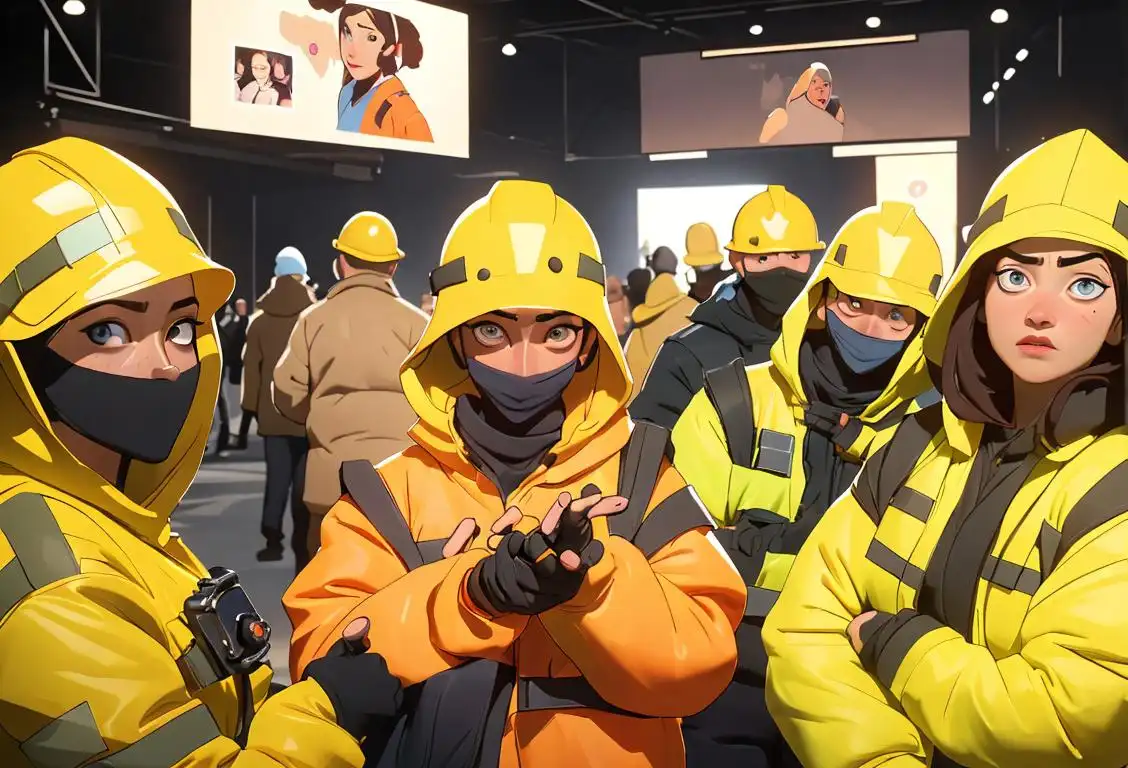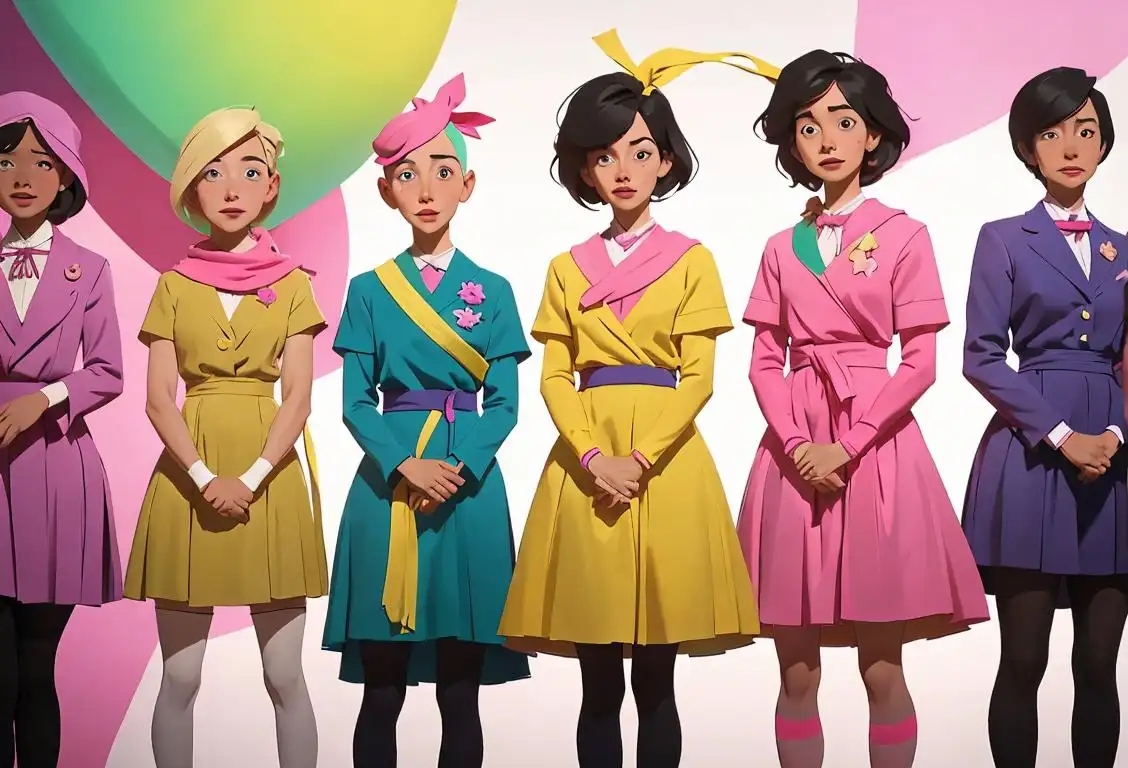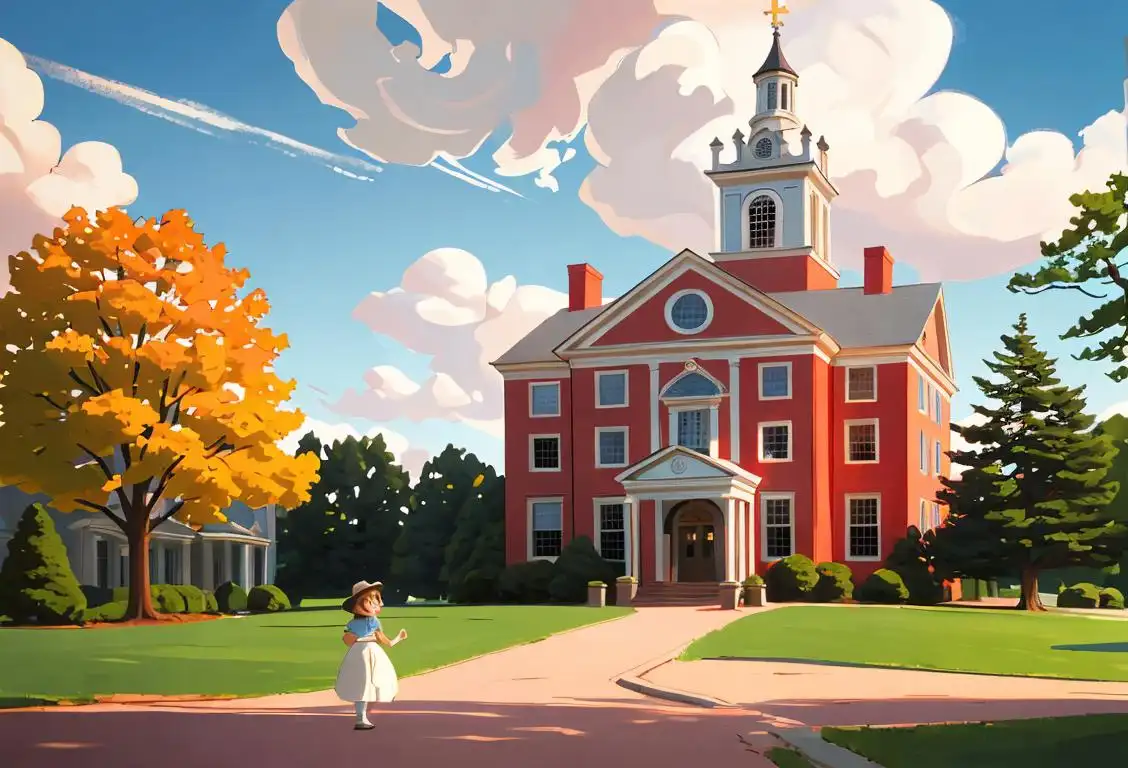National Crazy Day

Get ready for a wild ride of extraordinary shenanigans, for it's National Crazy Day! Buckle up, pop that neon pink umbrella hat on your head, and prepare to break free from the shackles of normality! Our digital detectives have had a field day, unearthing 155 mentions of this gleefully eccentric celebration, with the majority of chatter recorded on 28th July 2015.
When is Crazy Day?
It's national crazy day on the 28th July.
The Whacky History Behind National Crazy Day
It appears the Internet has lent a helping hand in making National Crazy Day as popular as bad singing in a shower. While its origins remain shrouded in mystery, there's no denying the pure joy and permission for absurdity it brings. If you've ever longed for an excuse to dash through sprinklers in your favorite dinosaur onesie or present your pet turtle with a tiny top hat, then this is definitely your day.
Famous Features of National Crazy Day
Like the dressing of a quirky salad, National Crazy Day is thoroughly mixed with delightful activities that defy logic. You can strut your stuff downtown in your pajamas, break into spontaneous dance in a grocery store, or even have a loud existential debate with Siri on a crowded bus. As with any good national day, sharing the fun online is a must. Trust us, it's more viral than cute kittens doing human things. The only rule: it should be utterly, gloriously, amazingly CRAZY!
Our virtual voyage through the annals of Internet history found the peak of National Crazy Day popularity on 28th July 2015 when the Internet collectively discovered its inner eccentric and went wild - a day that's gone down in infamy.
How To Celebrate National Crazy Day
The beauty of National Crazy Day is that there's no wrong way to celebrate. But if you're looking for inspiration, we suggest some slogan button-making, surreal sandwich crafting, or even organizing a neighborhood conga line. Share the merriment with the tag #NationalCrazyDay and watch the virtual world join in your revelry.
History behind the term 'Crazy'
1566
Etymology of 'Crazy'
The term 'crazy' originates from the late Middle English word 'erasie,' meaning 'cracked or flawed.' The word then evolved to 'craze' meaning 'shatter or break into pieces' in the early 16th century.
1667
Transition to 'Crazy'
By the 17th century, 'craze' had further evolved into the adjective 'crazy' as we know it today. The transition likely occurred due to a gradual linguistic shift to create a simple and versatile term.
1737
Cultural references in Don Quixote
One of the earliest notable mentions of 'crazy' can be found in Miguel de Cervantes' famous novel 'Don Quixote,' published in 1605. The main character, Don Quixote, is often described as 'crazy' due to his eccentric and delusional behavior.
1837
Medicalization of insanity
In the 19th century, the term 'crazy' became closely associated with mental illness as psychiatry began to develop as a field. The medicalization of insanity introduced new vocabulary to describe specific mental conditions, but 'crazy' retained its broader colloquial usage.
1910
Expression of unconventional behavior
During the early 20th century, 'crazy' gained popularity as a slang term to describe individuals who engaged in unconventional or eccentric behavior. This usage reflected the changing social norms and growing acceptance of non-conformity.
1960s
Counterculture and 'Crazy'
'Crazy' became a common descriptor during the countercultural movements of the 1960s. It captured the spirit of rebellion and non-traditional thinking embraced by various social and cultural groups at the time.
2000s
Contemporary slang and idioms
In contemporary usage, 'crazy' has expanded beyond its original meaning to be used more broadly as slang or idiomatic expressions. It can describe intense enthusiasm (e.g., 'crazy about something') or signify astonishment (e.g., 'that's crazy!'). The term continues to evolve and adapt to modern language and cultural contexts.
Did you know?
Did you know that 'crazy' originally comes from the word 'crasis,' a Middle English term meaning 'blending of temperaments?' Fitting for a day that allows free-blending of all the glorious madness out there, isn't it?Tagged
romance awareness food fun loved ones finance rememberance property sportsFirst identified
28th July 2015Most mentioned on
28th July 2015Total mentions
155Other days
Children Day
Personal Safety Day
Family Day
Cancer Awareness Day
Happiness Day
Action Day
One Day
Opposite Day
Believe Day
Massachusetts Massachusetts Day









